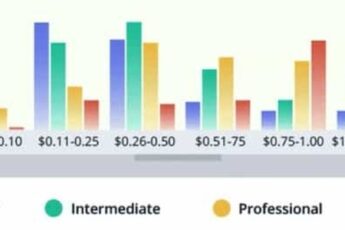
Imposter syndrome is something which I regularly face. It tends to come and go. Often when I least expect it. But on reflection, there are obvious triggers and reasoning behind its appearance. Sometimes it can be a passing thought and brief moment of doubt, but at its worst, it can be a crippling sense of unworthiness and lead to writer’s block.
I understand it’s not unique to me; most writers and creatives I know have suffered from moments of self-doubt. I’ve come to recognise it as an important part of the creative process; creativity is a form of exploration, entering the unknown, and it’s natural to question your choices and decisions when there’s no guide ahead. But when imposter syndrome hits hard, it’s important to have a set of go-to techniques and methods to get through it.
Ignore most criticism

One of the most common causes of imposter syndrome is criticism. Moreover, negative criticisms. One piece of harsh, negative feedback can quickly cast a shadow over a long line of positive feedback. Praise and congratulations can quickly raise your self-esteem and give that warm glow of confidence, but it often only takes one overly negative comment to undo it all and leave me harshly questioning my ability.
I’ve faced many negative comments and people overly critical of my work, but it’s always been from someone who doesn’t write. As a writer or creative, you need to develop a thick. Criticism and feedback are important to becoming a better writer, but learning to block out the overly negative (and sometimes overly positive) opinions is crucial.
You must learn to only take in constructive criticism and ignore the rest.
Write for yourself
For me, imposter syndrome often stems from a need to impress others. When you are writing on commission or writing with a particular reader in mind, being aware of your audience is not necessarily a bad thing, but it can lead to the wrong kind of focus. The pressure to deliver to a ‘standard’ naturally leads to self-analysis and doubt.
If I’m delivering a brief, I want to surpass expectations. If I’m writing for an audience, I want to make a positive impression and leave them wanting to read more of my work. But these are things I mustn’t focus on. My best writing has always come from writing for myself, trying to get the story onto the page in the most honest and interesting way.
Make time for self-evaluation and take pride in your work. But when it’s time to write, that needs to be put to one side, and you must write for yourself, not to the expectations of others.
Become your translator

When I’m writing a story and feel overly conscious of my progress and, moreover, feel the weight of self-doubt, I have to take a step back. There are times when I’m not clear on the story or characters, and maybe I’m trying to force a story onto the page when it isn’t ready; this is different and needs a different approach. But there are other times when the story and characters are ready, but imposter syndrome and a feeling of unworthiness stand in the way.
When I don’t feel worthy as a writer, I try to become my character. I’m just a translator for my characters to get their story on the page. It doesn’t need to be an amazing first draft (and it never will be), nor does it have to make perfect sense the first time around, but my prime duty is to get the full story onto the page. Questions of my talent and ability are irrelevant at this stage, I must focus on just getting the story out.
Push your feelings and doubts to one side and accept your role as a translator. Focus on the story’s world and allow the characters to speak through you.
Write about it
When imposter syndrome hits at its worst, it can bring the heavy weight of writer’s block. There’s nothing worse than doubting your ability and being over-critical of your work to the point that you can’t write. Because ultimately, the best cure for imposter syndrome and writer’s block is to keep writing.
It almost doesn’t matter what you write. If you are feeling ‘stuck,’ confused, lost, or uninspired, it’s important to keep writing, even if it means writing something completely different. It doesn’t have to be work; write a letter, a long email to a friend, a diary entry, or start something completely new and random. The important thing is to keep writing, and something positive will happen.
If you feel imposter syndrome overwhelms you, try to write about it and articulate your frustration and pain. Whether it is in the context of the piece you are trying to write or as a diary entry or letter to yourself, just write.
Become a better writer

Imposter syndrome gets a bad rap. You should never entertain thoughts of feeling unworthy or untalented, but maybe that’s not the point of imposter syndrome. There’s nothing wrong with wanting to be better. There’s nothing wrong with feeling you need to improve. These are much more healthy emotions than feeling over-confident and that you are close to perfecting your craft. You need to find that balance of confidence and pride in your ability but also hunger and drive to keep experimenting, growing, and learning your craft.
I read great works and watch interviews with great writers. I take in all the inspiration I can and listen to any valid tips and constructive feedback I get. Not every new technique or piece of feedback will make me a better writer, there’s a lot of trial and error involved. Not everything I write is good, and sometimes it’s easier to feel self-doubt when something doesn’t work out for you, and you aren’t happy with something you’ve written. But in that respect, imposter syndrome can be part of the journey to becoming a better writer.
Use imposter syndrome as a friendly reminder you can and will get better. Wanting to be better is an important quality to have. Never stop mastering your craft and never stop writing.
Know you’re in good company
For every great writer, there’s a story of self-doubt.
When Stephen King wrote Carrie, his first reaction was total self-doubt. It was his first novel, and imposter syndrome kicked in. He decided to throw away the manuscript, but his wife recovered it from the bin and convinced him to send it to publishers and let them decide.
As the story goes, it was flatly rejected by over 30 publishers, fueling King’s feelings of unworthiness. Until finally, it was accepted by Doubleday. Carrie became an instant best-seller and broke horror book records. Stephen King went on to write 53 more novels and 200 short stories, becoming a household name and widely known as the icon of modern horror.
If Stephen King had accepted his early run-in with imposter syndrome and concluded he wasn’t worthy of being a writer, he could have easily given up and never become one of the most celebrated writers of our time.




